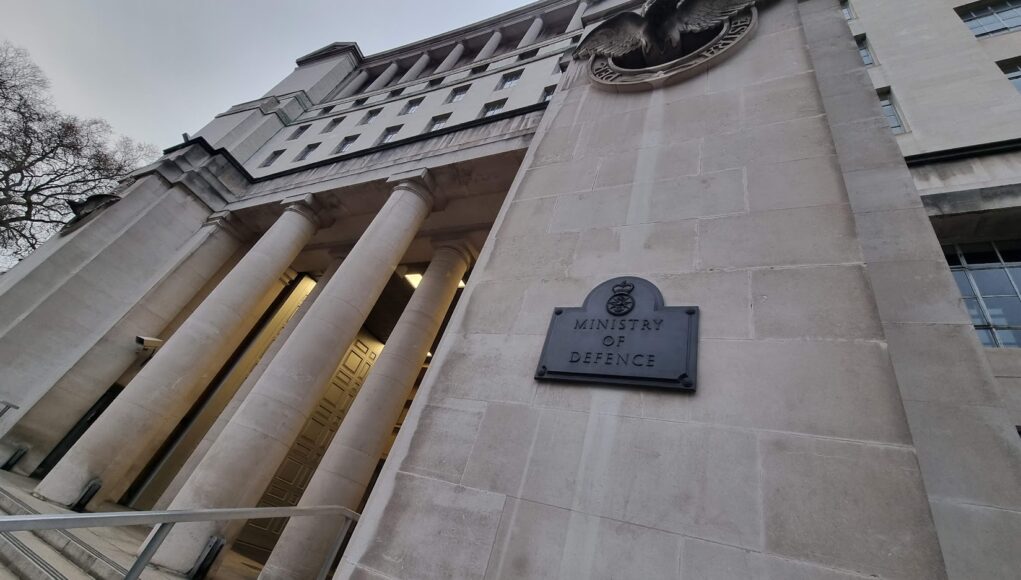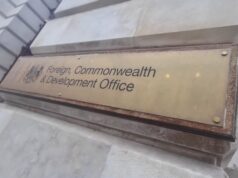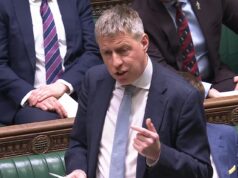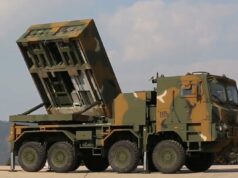Richard Tice, MP for Boston and Skegness and deputy leader of Reform UK, has challenged the Ministry of Defence (MoD) over its financial commitment to achieving net zero targets, questioning the extent of spending in this area over the past five years.
Tice’s written parliamentary query asked: “How much his Department has spent on measures to achieve net zero targets in the last five years.â€
Responding to the question, Luke Pollard, Minister for the Armed Forces, emphasised the MoD’s contribution to the UK’s legal commitment to reach net zero by 2050. He highlighted: “The Ministry of Defence (MOD) is fully committed to contributing to the UK achieving its legal commitment to be Net Zero by 2050.â€
Pollard noted progress in reducing emissions, revealing a decline from 3,650,000 tCO2e in 2019-20 to 3,012,000 tCO2e in 2023-24. However, he did not provide a specific figure for spending on decarbonisation measures.
Instead, he argued that such measures are part of broader operational investments: “Defence spending is investing in building our warfighting capability and to enhance operational advantage and resilience to protect our values and interests. Benefits of decarbonisation are a positive spillover and are not differentiated from this investment.â€
Pollard highlighted trials integrating alternative fuel sources and renewable energy technologies as examples of investments that serve dual purposes, stating: “Trials integrating alternative fuel sources and renewable energy technology can further unlock an ability to operate for longer periods without resupply and at greater reach across a dispersed battlefield.â€
While the Armed Forces Minister’s response underscored the MoD’s efforts to cut emissions, questions remain unanswered about the financial scope of these initiatives.
For those seeking further details, the MoD refers to its Annual Report and Accounts, Annex D, which includes information on Defence energy use and emissions.














What he should be asking is what are the total costs for MOD infrastructure projects where DREAM and SEAT assessments are required. They add absolutely nothing to achieving net zero but require the employment of dedicated consultants for contractors and of course MOD assessors. This coupled with the additional fees required to employ other consultants to undertake specific reports to achieve credits is a monumental waste of time and money.
I see it every day.
They thought that having petrol in an armoured vehicle was risky, so now they want to replace it with a ticking bomb which will melt the entire vehicle if it develops a fault or gets hit with something sharp..
AA
Nothing in the army uses petrol its all diesel which is a lot less combustible than petrol
We should stop wasting all this money on net zero crap and just get back to buying as much oil and gas from Saudi, Iran, Venezuelan and Russia as possible. That’s how we make Britain great again.
We could stop all these guys building wind turbines off the East Coast of England and Scotland and get those fellas back to some proper work down the pits.
I had several great uncles who all worked down the pit and they loved it, off course they often ended with complaints like white finger and black lung and none of them lived past their 60’s but then that probably saved a fortune in pension contributions.
Failing that we could just write another cheque to France for a few hundred billion for some more EPR’s.
Well said, that man!
They would been lucky to make to Sixty
Yeah clear climate change denier hereships
You do know before the age of steam and steel, wind was the main method of propulsion for ships but technology never stops moving forward
I think they missed the sarcasm?
I keep forgetting the Monster Raving Loony Party now has five seats in Parliament…
And if the electoral system wasn’t rigged for the 2 party revolving door, and we had PR, the Reform party would represent the 4.1 million UK citizens who voted for them and have around 85 MPs. But alas maybe the fact the UK electorate are sick to death of the main stream mongs in charge and support for Reform is growing expediently and maybe democracy scares you? Don’t worry, you will still have a place in the sheep pen and you can continue to vote as per sheep are required to do so (but maybe not in local elections as the current Nazi party second rate Governemnt we have would like to stop or delay them)
I have very good reason to be against that far right group Reform UK as they threaten my rights
These people want people with disabilities to be ostracized from society
Mr ice is now the MP for Skegness and Dubai.aiui.
I would like to know whether he and Isabel Oakeshott will be conforming to the local culture, as is their demand of immigrants.
You will find the Reform traitors well represented on this sites comment pages unfortunately. I hope that is not a worrying sign of their infiltration of the military. In the run up to the last general election we had seven calls for a coup if Labour won?
are we going to build charging points around the world so we can charge the next generation of tanks when or if needed
Ideally a power pack that does not need oil would be a better choice as electricity powered vehicles are not ideal for every vehicle
Unlikely, but a full hybrid power system for armoured vehicles would be an improvement in terms of range and increased independence from resupply, whilst reducing emissions and running quietly on electric power only.
Ze more ve kill ze less svine hunds to make ze climate nichts gute.
What we need is an Obergruppenfuhrer running the net zero office who answers directly to Herr Wolf.
You couldn’t make this schiesse up. ðŸ³ï¸â€ðŸŒˆðŸ´â€â˜ ï¸